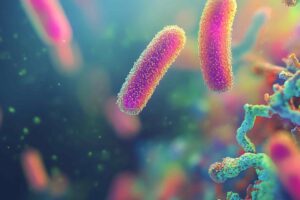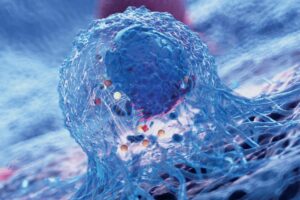Text
Gynecology
The findings suggest that 4-hydroxyindole could be a promising biomarker for diagnosing endometriosis.
Industry, Neuroscience
A significant milestone for both microbiome research and neurodegenerative diseases.
Gastroenterology, Scientific research
The study identified a core microbiota signature that may serve as a health indicator and a therapeutic target.
Scientific research
Standardizing microbiome analysis improves the quality and reliability of data, helping researchers to explore the gut microbiota’s impact on athletes and its relationship with health and performance.
Industry
A Bill & Melinda Gates Foundation strategic investment to tackle bacterial vaginosis and improve maternal and neonatal health outcomes worldwide.
Biofarma Group has launched an innovative project in collaboration with the Department of Surgery, Endocrinology and Gastroenterology of the University of Naples ‘Federico II’, the Centro Sperimentale del Latte (CSL)…
Gastroenterology, Pediatrics
The results also indicate that the hospital environment influences the gut bacteria of preterm infants, highligting the importance of managing antibiotics and medications to support a healthy gut development.
Gynecology
A systematic review recently published in the Journal of Reproductive Immunology provides a comprehensive overview of the emerging role of the microbiome in recurrent pregnancy loss (RPL).
Gastroenterology, Industry
Three-year collaboration to pioneer new insights in microbial sciences and health applications.
Gastroenterology, Industry
New microbiome based therapy demonstrates safety and potential benefits for liver cirrhosis and mental health.












